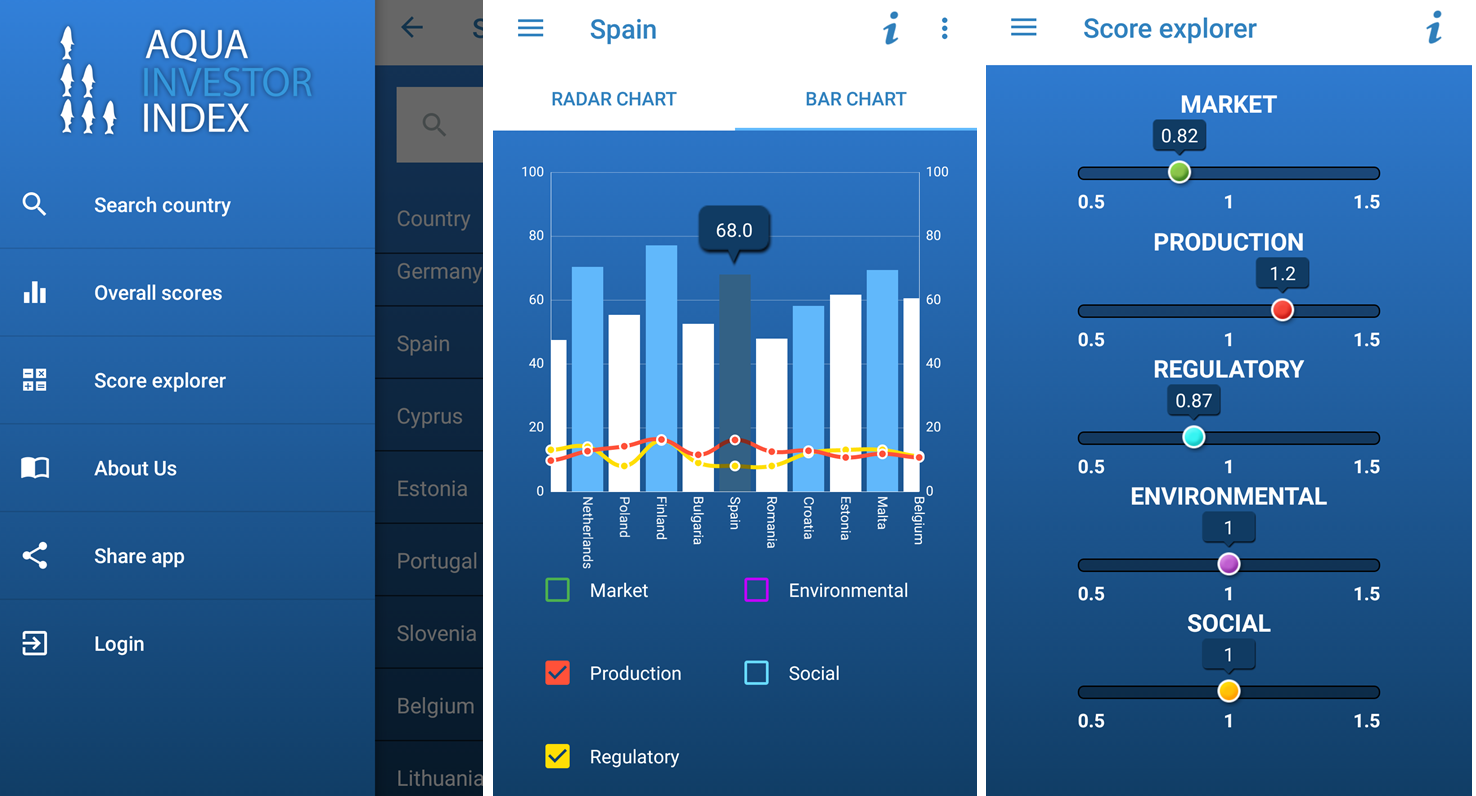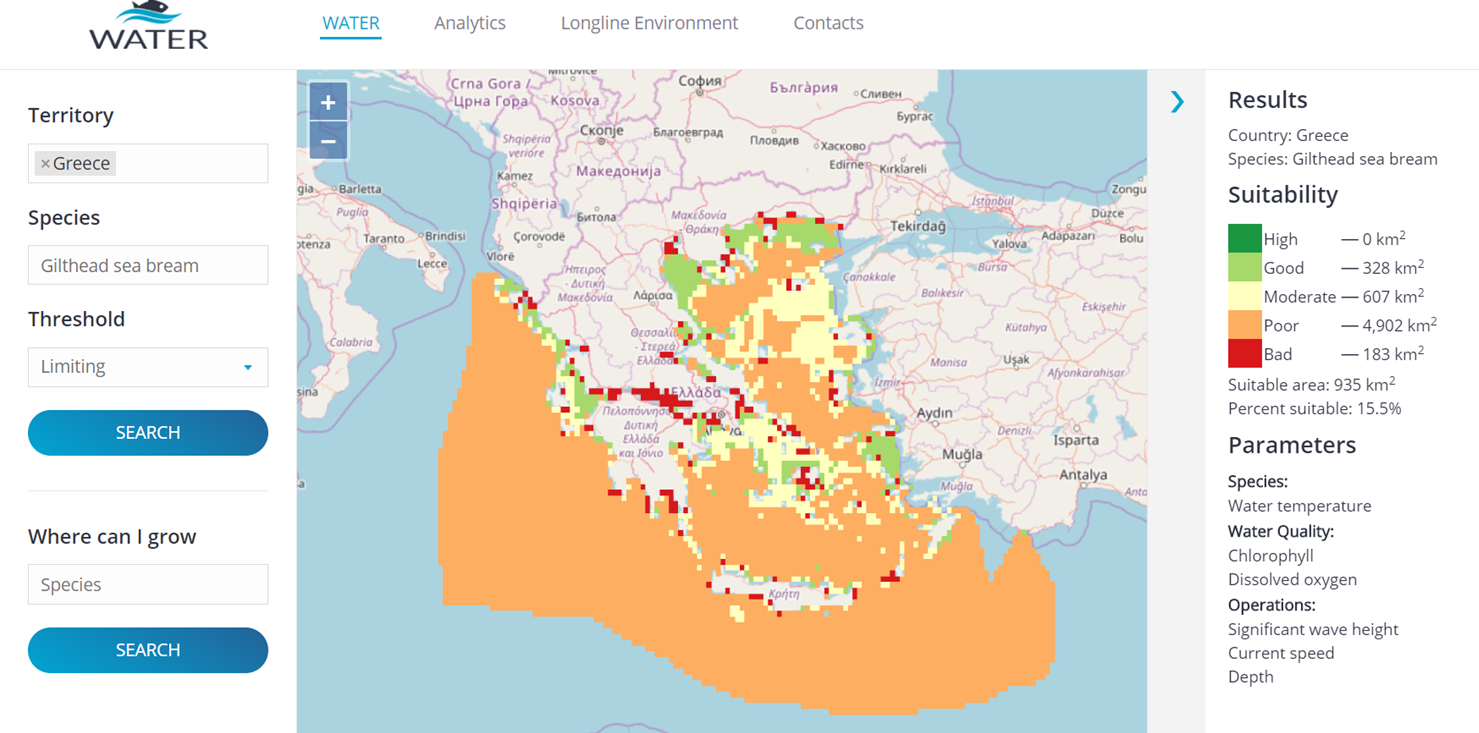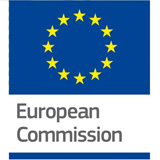You are here: Home > Research and Innovation > Collaborative Research > AquaSpace > Longline Role
LONGLINE ROLE
Longline in AquaSpace
Longline plays a central role in the AquaSpace project, is a member of the Management Committee and leads one of the primary tasks, to evaluate industry-wide issues and options in relation to providing more space for aquaculture development.
Longline Outcomes
1. Support partners in policy and management issues, marine spatial planning, and land-based planning for aquaculture to increase space for aquaculture using the ecosystem approach to Aquaculture.
2. Develop a web application called WATER, designed to provide support to planners, investors and the general public in identifying the environmental potential for European aquaculture, with an emphasis on sites, both on land and in open water, as to where different cultivated species can be grown.
3. Support partners in understanding what other use and user interactions there are in marine and freshwater systems and evaluating both the constraints and opportunities that are available to the aquaculture sector to co-locate in space.
4. Develop a smartphone application called the “Aquaculture Appeal Index” which provides investors with a European wide country comparison to determine which countries provide the best conditions to develop aquaculture, based on a broad set of categories and indicators. The index is aimed to increase transparency and accountability for current and prospective aquaculture stakeholders in Europe and identify areas of improvement.
5. Support Case study partners in developing programmes that will overcome some of the space issues that prevent aquaculture development.
Aquaculture Investor Index
The attraction of investment into European aquaculture is important to foster sector growth. Investment decisions allocate resources and capital, taking into account a number of criteria that determine investment viability per country. The Aquaculture Investor Index (AAI) benchmarks and tracks countries' progress on a pre-defined number of categories and indicators, aggregated across five categories: market, production, regulatory, environmental, and social. The Aquaculture Investor Index is designed to rank the competitiveness of a country performance relevant to aquaculture sector. Assigning a competitiveness score for each country using a composite index value based on the average score of the five categories.

WATER
WATER uses big data analytics to determine the relevance of different species in distinct geographical areas. WATER integrates diverse datasets, pairing environmental and species parameters, to provide powerful analytics for aquaculture growth.
Explore species suitability across territories to obtain a high-resolution identification of relevant spatial areas. Query single or multiple territories for different species at the resolution of 1 square kilometre. WATER ranks outcomes using combinatorial scores ranging sequentially from 5 (high) to 1 (bad), discriminating the suitable area for aquaculture (area and percentage).
WATER - Where can Aquaculture Thrive in EuRope - is a website that combines big data with online processing to provide information for industry, management, and the public. WATER allows users to examine all the European Exclusive Economic Zone in order to select suitable sites for aquaculture, on a species by species basis.

The aim of WATER is to provide Europe-wide mapping of a combination of environmental and economic possibilities for aquaculture siting. Outputs from WATER can be combined with Geographic Information Systems (GIS) that can analyze these data in the context of broader marine spatial planning. WATER deals with marine areas at a scale of squares of one nautical mile, and also addresses all the major European lakes and reservoirs.
WATER interacts between map locations and species thresholds, allowing identification of candidate species and areas. Triage is centered on a pre-defined set of conditions for cultivation, e.g. an area may have environmental conditions to grow salmon but not physical conditions to moor cages.
« back


